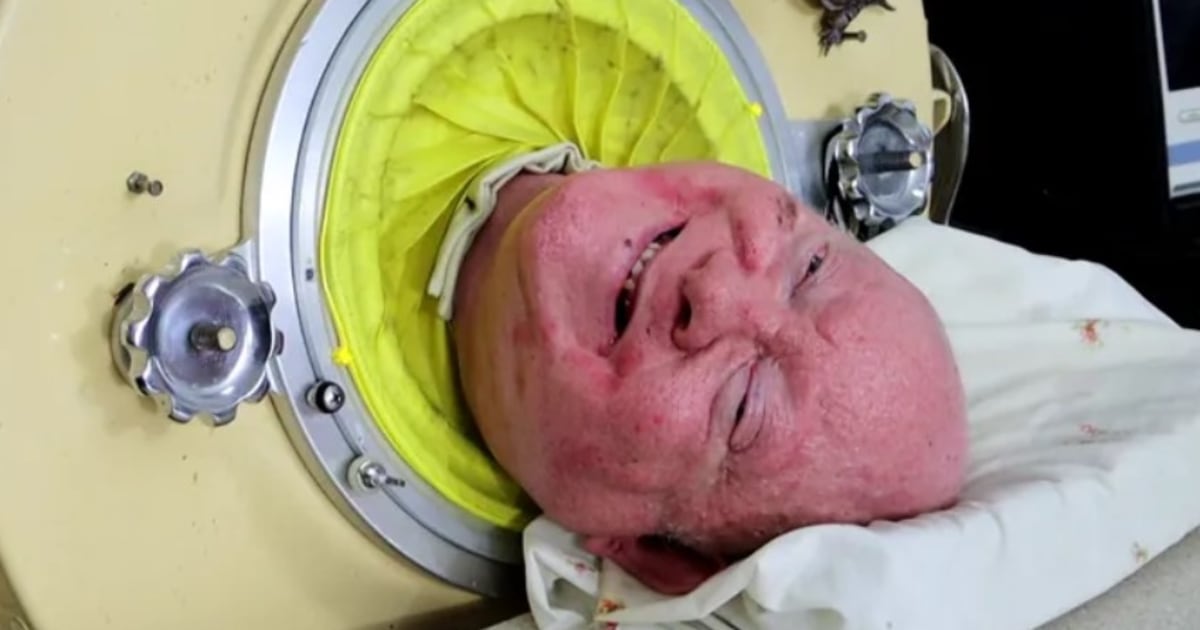Study: Covid-19 Symptoms May Persist 6 Months 0:57
(CNN) -
Seven out of 10 people hospitalized for covid-19 had not fully recovered five months after they were discharged, according to a new study from the United Kingdom, where authorities consider it necessary to study the 'prolonged covid further. 'to improve patient care.
Survivors of the coronavirus continued to experience concerns about their mental and physical health.
One in five people developed a new disability and a similar number are not working or had to change jobs for their health, according to the findings of British researchers.
The people most likely to have symptoms that persisted were white women who developed severe cases of Covid-19.
They also had at least two conditions that put them at higher risk for serious illness, such as diabetes, asthma, or heart disease.
"Our results show a large burden of symptoms, mental and physical health problems and evidence of organ damage five months after discharge with COVID-19," Rachael Evans said in a statement.
Evans is Associate Professor at the University of Leicester and Consultant on Respiratory Issues at Leicester Hospitals.
"It is also clear that those who required mechanical ventilation and were admitted to intensive care take longer to recover," he said.
However, he noted that much of the variety of persistent problems was not explained by the severity of the disease.
This indicates that there are other underlying reasons.
The nationwide study in the UK looked at 1,077 people.
All were discharged from hospitals between March and November 2020. Among them, 67% were white and 36% were women.
In addition, 50% had at least two conditions that put them at risk of developing a serious disease.
advertising
5 months later, more than 90% had at least one persistent symptom
When the participants were followed up five months later, only 29% said they felt fully recovered.
More than 90% of people had at least one persistent symptom, and most experienced an average of nine ongoing symptoms.
The 10 most common symptoms were muscle pain, fatigue, physical slowing down, impaired sleep quality, joint pain or swelling, limb weakness, shortness of breath, pain, short-term memory loss, and difficulty thinking with clarity, according to the study, which has not been peer-reviewed.
Mental health was also affected.
More than 25% of people had clinical symptoms of anxiety or depression and 12% had symptoms of post-traumatic stress disorder (PTSD).
These are the most common signs of depression 28:43
The participants were divided into four groups based on the severity of the symptoms when they were followed up.
The categories were very severe, severe, moderate, and mild.
46% of the people were in the latter group.
What could be the cause?
Based on the groups, the researchers also identified a potential cause for these persistent health effects.
Five months after discharge, the patients with the most severe symptoms had higher levels of a protein called C-reactive protein.
This protein is associated with inflammation in the body, explained Louise Wain.
Wain is the director of respiration research at the University of Leicester and a co-investigator on the study.
"From previous studies, it is known that systemic inflammation is associated with poor recovery from disease across the spectrum of diseases," said Wain.
In the groups, persistent inflammation in the body determined by this C-reactive protein was linked to the severity of symptoms, but not to the severity with which COVID-19 affected patients when they were in the hospital.
'We also know that autoimmunity, in which the body has an immune response to its own healthy cells and organs, is more common in middle-aged women.
This may explain why post-covid-19 syndrome appears to be more prevalent in this group.
However, more research is needed to fully understand the processes, ”he explained.
Further study the 'prolonged covid'
Researchers are now calling for more follow-up care to be provided to coronavirus survivors.
"Our findings support the need for a proactive approach to clinical follow-up with a holistic assessment that includes symptoms, mental and physical health, but also an objective assessment of cognition," said Chris Brightling, professor of respiratory medicine at the University of Leicester. and principal investigator of the study.
Continued study of the recovery trajectory over a longer period, coupled with a greater understanding of the biology underlying post-covid-19 symptoms, will further guide approaches to clinical management after covid infection -19, "he said.
Study participants will be evaluated again at 12 months to collect more data on the long-term impact of COVID-19.
Professor Chris Whitty, UK Chief Medical Officer and Co-Director of the National Institute for Health Research, said in a statement: 'It is important that we find out exactly what the different elements of what is currently called' prolonged covid 'are so that we can guide actions to prevent and treat people who suffer long-term effects ”.
"I know that 'prolonged covid' can have a long-lasting and debilitating impact on the lives of those affected and I am determined to improve the care we can provide," UK Health and Social Care Secretary Matt Hancock said in a release.
"Studies like this help us to rapidly develop our understanding of the impact of the disease and we are working to develop new research to be able to support and treat people," he added.









